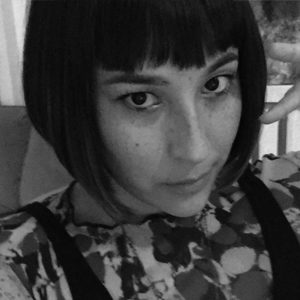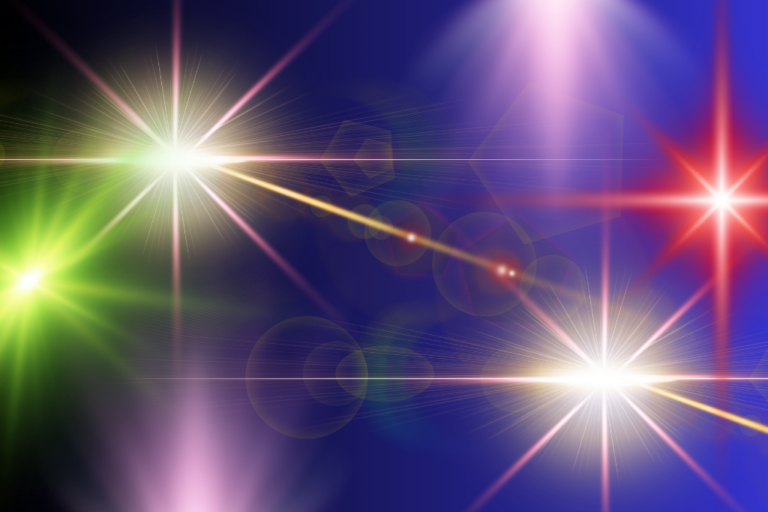Finding My Kindred Kwe
I only recently started to consider myself an artist. I’ve practised everything from visual art to filmmaking since childhood, but I used to call myself a “creator.” It was about the process of creating art.
But I’ve found that as my content gets more political, it’s become about more than creativity. I am now placed in a category of artists defined by my cultural identity and heritage.
I grudgingly carry the title “Aboriginal artist.”
I say “grudgingly” because whether it’s my own choice or the observer’s, my work will always be tied to my cultural identity. Identity politics is a sticky place to live; a place where we Aboriginal artists are constantly forced into a role of defending, educating, and advocating on the issues pertaining to our identity.
My identity just so happens to be a hot topic in this settler-state, because… guilt? I could get away with arguing that this deep-seated guilt drives the settler-state to recognize Aboriginal artists, but it’s not my style and it actually goes much deeper than that. It’s about the land and the land-keeper—the First Nations.
First Nations’ languages, cultures, political structures, laws, customs, and ethics are intrinsic to the land and our metaphysical position as land-keepers. Hundreds of years of colonization has not changed that. Our identities as Aboriginal people are under attack because we are the only ones left with traditional territories.
As an “Aboriginal artist,” my practice and content oscillates between opportunities that tout recognition and reconciliation depending on the political flavour of the day. I see this as a form of control by the settler-state.
While I maintain control by choosing how I explore my identity, I can’t help but feel that Aboriginal art is fuelled by a guilty nation, one that won’t take the time to understand the art that’s made or the processes of the artists.
Canada wishes to reconcile through the recognition of the First Nations and we are asked to make ourselves visible, but in every circumstance we must prove that we are who we say we are.
This is exhausting.
For my day job, I work diligently on social issues that affect Aboriginal peoples. I sit in a circle with other bright minds, brainstorming possible solutions to injustices that our communities face, like child welfare, addictions and mental health, barriers to employment, health and healing, suicide, poverty reduction, the list is endless. This too is exhausting.
The part that isn’t exhausting, though, is the laughter that comes from exhausted people who connect over what it means to be human. I’m not the only one who is tired by this identity. I’m not the only one who has learned that laughter is good medicine, or who knows that at the end of the day, laughter is one thing—much like art—that we all share and hunger for as nations on this planet.
Last year, I was approached by the program director at my place of employment. She said, “I have a dream of starting an Indigenous women’s stand-up comedy group to make jokes about assimilation and our experiences, you should come.” I said, “I hate stand-up, but I like my job so I’ll see you there.”
My hatred for stand-up was a personal one. I had always thought of it as white men sitting around an open mic making inappropriate jokes about everyone who is not a straight white man. I still feel sick when jokes are racist, sexist, or homophobic. In that moment, though, I hated stand-up so much that I tried it out just to understand my own hatred.

Manifest Destiny’s Child in the writing room
Day one in the comedy classroom we were asked to write our first joke.
I wrote:
So I got on this airplane and there was a white guy in my seat, and when I asked him to move, he said that he was here first. So I pulled out my status card, but really I should have forcibly removed him from my territory and made it incredibly awkward for the rest of our journey together.
In all the years that had passed after leaving the rez at eighteen, I hadn’t found a place to be understood or to safely explore my own deep resentment and anger toward the inequalities created by the settler-state. But in that comedy class, I had found my kindred kwe (women). We called ourselves Manifest Destiny’s Child.
I was relieved to know there were other Indigenous women out there who were working relentlessly for our communities, who wanted to use humour as a weapon to explore, dismantle, and reconnect to our cultures. And, most importantly, who wanted to use it to heal and empower ourselves by telling our stories, sharing details about our difficult lives, and supporting each other.
My earliest memory of stand-up is watching the comedian Don Burnstick with my family on the rez, just a regular Friday night for the semi-dry folk. I think we borrowed the VHS from one of my cousins; don’t know if we ever returned it. I remember laughing until it hurt because he depicted the stereotypical rez-Indian behaviours that we had normalized, and then hearing my mom lamenting with the popular phrase from my rez: “Er, ever sick. He’s sick.” (What a sad joke).
Hearing my parents laugh made everything feel okay, too, like it was safe to be a kid for a minute. When you grow up in a tumultuous environment in poverty and violence, watching the anger and hatred of a nation, observing the people you love or know struggling with alcohol and addictions, hearing laughter is very soothing. It resonated in me that no matter how bad things got, as long as we could laugh we would be okay.
When I was first learning to write comedy, I thought about my connections to the “funny.” Like how the women in my community would laugh; full, rambunctious, without regard. Like why they would laugh; they needed it to raise a new nation. Like how creating laughter was the most important thing; a story gets passed on only if you can feel it in your body and it transforms you.
I thought about my own life and why I need to laugh. I’m living in a time that demands truth and reconciliation in a very old story. And it’s not just my story, it’s a human story. The only way to get others to participate in it is to create the opportunity.
Though comedy may not be my true calling, it’s a skill that I’ve learned is useful and I’m honing it in order to connect with others who’ve made homes on this land. I should hope that when we’re done crying, Canada, let’s laugh and remember what art and creation really is: human.
J.L. Whitecrow’s show Jiisakan is on from February 21 – 23 as part of the Rhubarb Festival. For tickets or more information, click here.









Comments